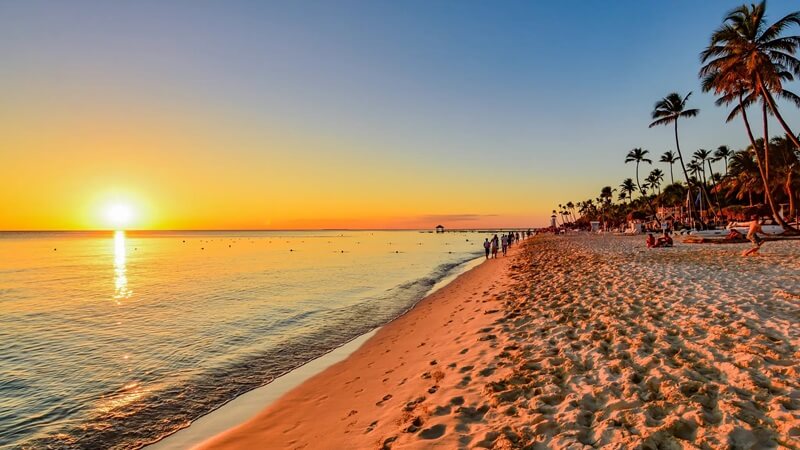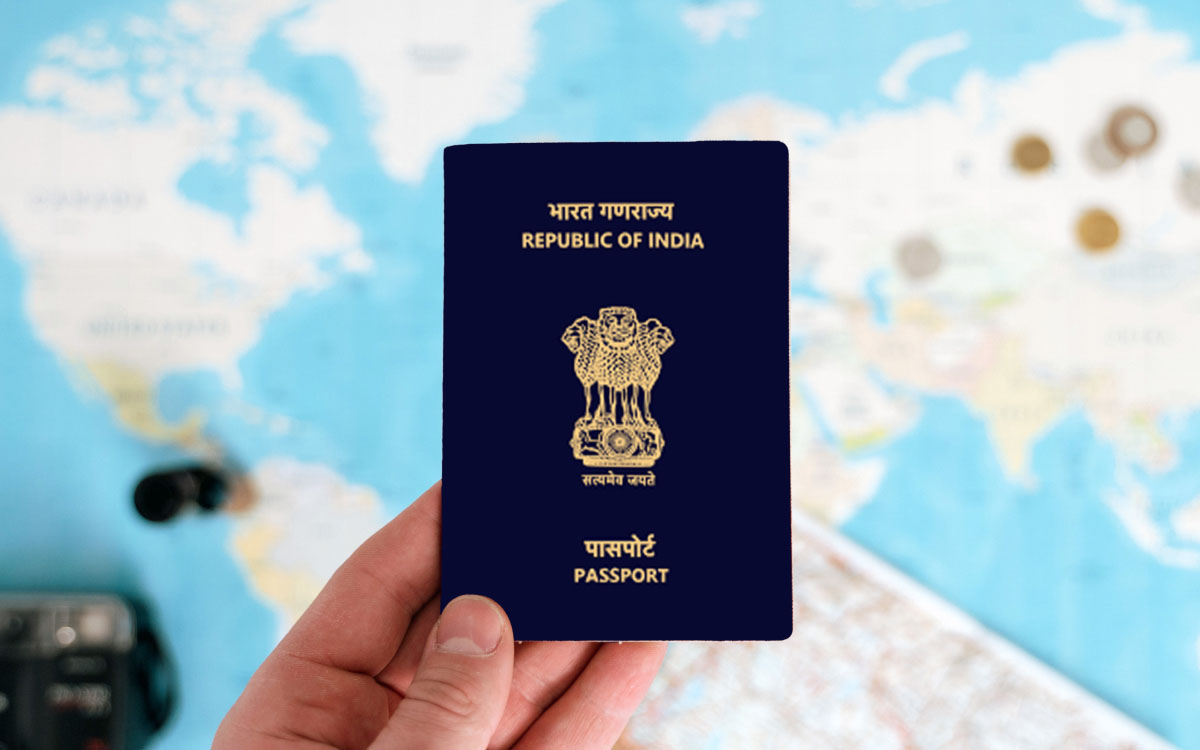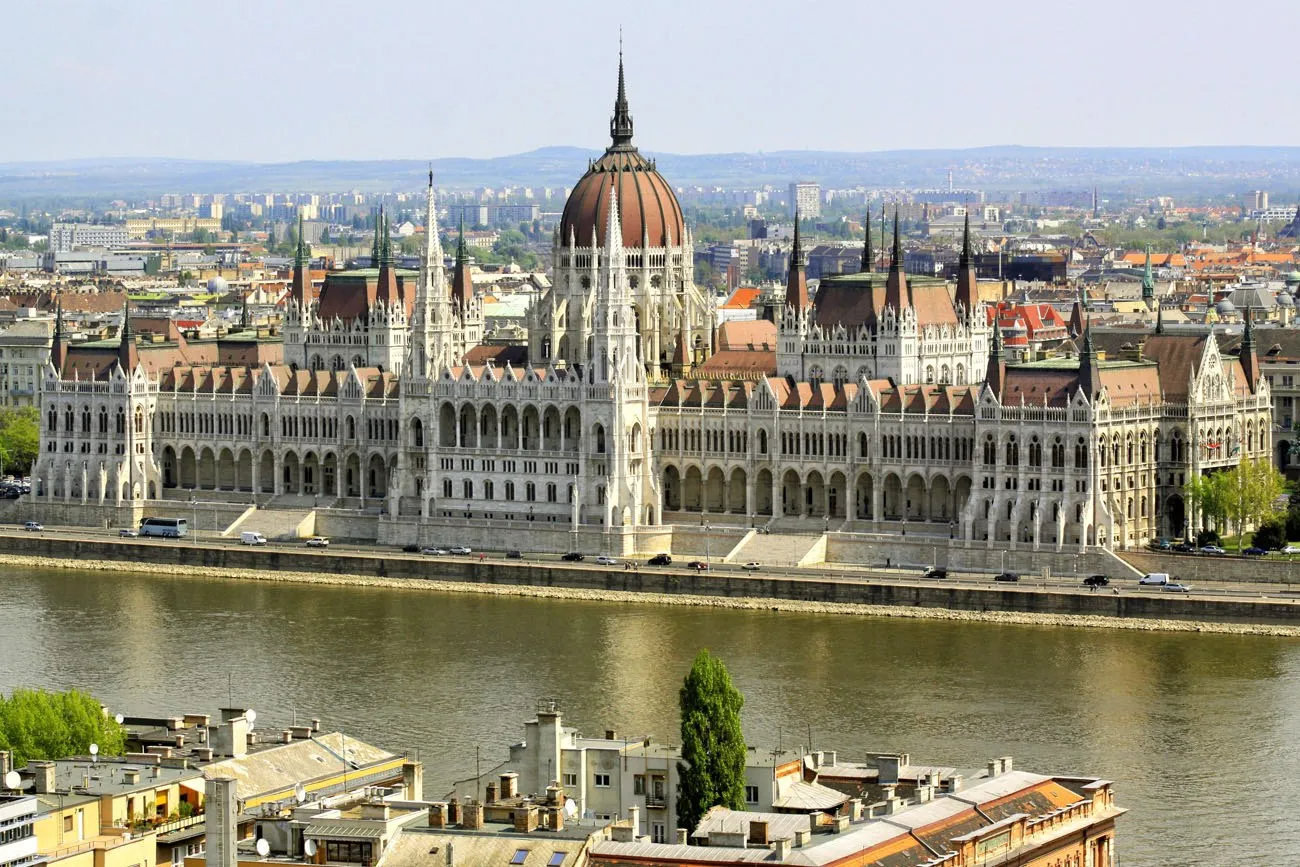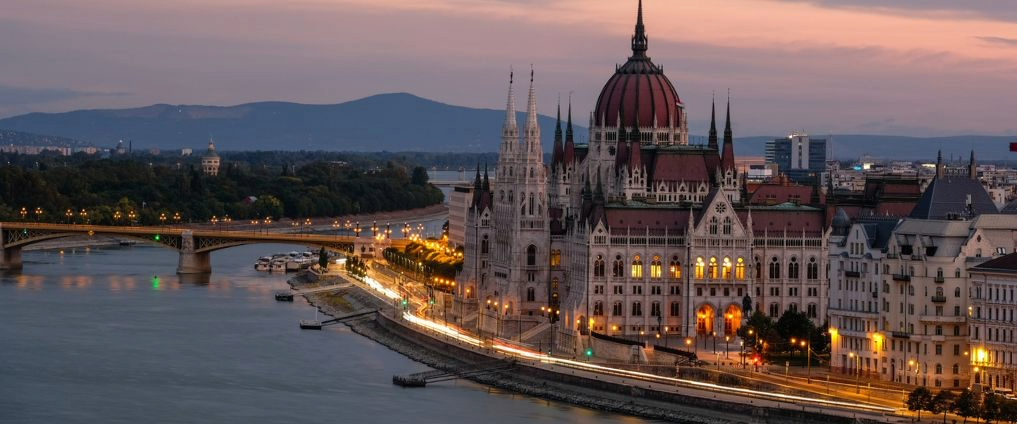Dominica is generally recognized as the “Nature Island” of the Caribbean and is one of the most sought-after destinations in the quest for Immigration to Dominica to improve one’s lifestyle, either as an individual or as a family. With its peaceful landscapes, friendly communities, and very encouraging economic climate, it is an inviting place to live in and to invest in. A variety of immigration routes exists for the many needs and financial spectrums of interested applicants, the most popular of which is the Citizenship by Investment program. Whether an investor aims to take advantage of its favourable tax environment or is a retiree who wants to live out his life in peace, Dominica is simply hard to pass on.
Having rich natural beauty and relatively low cost of living, Dominica is the most sought-after destination among people looking for relocation. In fact, the rainforests, volcanic mountains, and virgin beaches of this island are beyond compare. Other than the scenic beauty, the land comprises an exceptionally closely-knit society in all aspects. The people here are so welcoming that it isn’t very difficult for new folks to blend in with the culture and livelihood of the place. Additionally, Dominica is strategically situated within the Caribbean region or close to major travel centres and thus a good choice if somebody desires to travel around this area.
Besides its beauty and community, Dominica comes along with a lot of financial benefits. The country has gradually positioned itself as one of the emerging investment hotspots in the Caribbean, largely through its CBI program. Investors enjoy dual citizenship with access to tax incentives in many countries and visa-free travel. The government has continued to perfect and enhance the program, which makes it one of the most accessible and affordable options for people looking into second citizenship.
Another critical issue that makes the island a suitable destination is its political stability. The island is known for its very peaceful government and its commitment to ensuring the safety and prosperity of its citizens. It provides a stable environment for families, retirees, and businesses with its well-regulated system in place. Be it opening a new business, making investments in real estate, or retiring to a land that allows one to enjoy the pace of life, Dominica offers a plethora of options.
Meanwhile, Dominica stands out for the emphasis it places on sustainability and the care of the environment. The government of this country has been very serious about the protection of its peculiar ecosystems, which include its rainforests, rivers, and marine environments. In this way, it is guaranteed that the island remains a wonder to behold and positions Dominica as a responsible and forward-thinking destination. If one is concerned with environmental sustainability, this is a particularly appealing aspect of living on this island.
Finally, the modern infrastructure and developing services sector of the island make it a feasible destination for business as well as pleasure. Emphasizing infrastructural development like roadways, telecommunication networks, and health facilities, Dominica provides many conveniences of modern life while retaining its unique charm. The combination of natural beauty, economic advantages, and strong community ethos creates Dominica as an ideal place to consider for immigration.
Immigration Pathways to Dominica
Citizenship by Investment Programme
The Dominica CBI Program is still the most popular and accessible immigration route in Dominica. Until December 2024, it even remains the most affordable program and less cumbersome to get full citizenship in one of the nations of the Caribbean.
There are mainly two investment routes for the CBI program: one is a donation to the EDF, and the other is a real estate investment. This will grant citizenship in three to four months to the applicants, provided their case is not a complex one. Both routes allow adding a spouse, children, and dependent parents to the application-a great avenue for family-based immigration.
Investment Options:
- Govt. Fund Contribution: The most straightforward &inexpensive way is contribution to Dominica’s Economic Diversification Fund, which finances various developmental projects across the island of infrastructural, social importance as roads, bridges, new hospitals and schools. The contribution minimum for a single applicant will be $100,000, while for a family of four, the amount begins from $175 000 with extra charges applied to dependents and administrative. This contribution, on the other hand, does not have a return on investment. It provides a fast track to Citizenship.
- Real Estate Investment: The other major route is through a Real estate investment in government-approved developments. The minimum investment for this is $200 000 for a single applicant. This is higher as compared to the donation route but offers the possible potential for capital appreciation. The investments in real estate must be maintained for a minimum of 3 years before being resold. They may choose high-class resorts or residential projects, adding to the developing tourism industry of Dominica. Besides the cost, there are extra expenses for the maintenance of property, lawyer fees, and registration.
Eligibility Criteria:
To apply to the CBI program, an applicant needs to fulfil the following requirements:
- Age: 18 years or older.
- Provide proof of a clean criminal record in their home country and countries where they have resided for more than 12 months in the last 10 years.
- Medical examination.
- Proof of the source of the funds utilized for investment.
- A valid passport and background check. Application Process The CBI process includes the following:
- Pre-Application: The next step involves gathering the required documents: identification, proof of funds, police certificates, and medical certificates. It is highly advisable that you do this through the services of a licensed agent.
- Submission of Application: Once the documents are in order, the application is made to the CBIU via a licensed agent. It is this unit that would review the application and follow through with due diligence, something that could take a number of weeks.
- Due Diligence: The CBIU then conducts thorough due diligence on the applicant and his dependents after submission, to verify their eligibility. This is the most crucial stage of the process, as the government is keen on ensuring that the program is not abused.
- Approval and Investment: Applicants will make the required investment once the application has completed the necessary due diligence: making payment to the EDF, which hosts the government fund donation route; finalizing property purchase on the real estate option.
- Citizenship Issuance: After the financial contribution or investment is confirmed, applicants receive their Dominica citizenship and passport. This typically takes 3-4 months from the initial application submission, making it one of the fastest citizenship programs in the Caribbean.
Example: In the case of a family of four, the contribution required through the route of government fund donation would be $175,000, plus government fees at approximately $25,000, which also includes due diligence and processing fees. For real estate investment, the minimum investment would be $200,000, plus other costs associated with it such as legal fees, registration, and government taxes.
Residency Permits to Dominica
If you are not interested in full citizenship right away, Dominica offers long-term residency options. This is the perfect route for individuals or families that want to live and work in the country but who do not immediately wish to seek citizenship.
Requirements of Long-Term Residency:
- Residency Visa: A long-term residency visa can be issued to foreign individuals, usually valid for one year and renewable. This is an excellent option for those who want to experience life in Dominica before making the full commitment to citizenship.
- Work and Business Opportunities: Permanent residents in Dominica have the right to work and run businesses here. There are no significant restraints on employment, though in certain fields they need to meet particular licensing necessities.
Example: A businessman who wants to open a small business in Dominica will apply for a long-term residence permit, and then separately apply for a work permit linked to the specific business applications. In this process proof of the viability of the business and the related business licenses need to be obtained
Costs of Residency:
The costs of residency will vary but generally include:
- Application Fee: From $1,000 to $2,000, depending on the visa type and the size of the family.
- Renewal Fees: The visa will have to be renewed annually by paying from $500 to $1,500 every year.
Work Permits
To work in Dominica, a person has to obtain a work permit. Although it is relatively easy, one needs to have secured an offer of employment from the employing firm in the destination country.
Sectors that Currently Have a High Market Demands:
- Tourism and Hospitality: Tourism in Dominica is one of the most established sectors in the country. As such, hospitality occupations like hotel workers and tour guides are in high demand.
- Health Care: Health care professionals, registered doctors, nurses, medical interns, laboratory technicians, and laboratory personnel are in high demand.
- IT Industry: As Dominica reaches a new era of phenomenal progress, IT professionals in various spectrums of software technology, cyber security, information exchange, and data banking demand a good market, end
- Find Employment: First, you need to secure a job offer from any business entity resident in Dominica.
- The employer will apply on your behalf to the Ministry of Labour for approval.
- Approval and Issuance of Visa: Upon approval, the applicant is granted a work visa and can start working in this island nation.
Example: If you’re a medical professional and landed a job at one of private hospitals in Dominica, a medical facility will file on your behalf all the necessary papers for your work permit; once it is approved, you may start working under residence permit.
Family Immigration
Under Dominica’s immigration laws, applicants are allowed to include immediate family members in their respective applications for either citizenship or residence. The primary benefit arising from this CBI program is facilitated family-based immigration.
Dependents Who Can Be Included in an Application
- Immediate Family: Your spouse, children below 30, and dependent parents are those who could be included in your application for citizenship through investment.
- Extended Family: The inclusion of extended family members may be allowed, provided such cases are subjected to due diligence and approval.
Example: If you apply for citizenship through the route of the government fund, you will be able to include a spouse, children under 30, and financially dependent parents in your application. In this way, the application process will be more reasonable and family friendly.
Requirements and Process
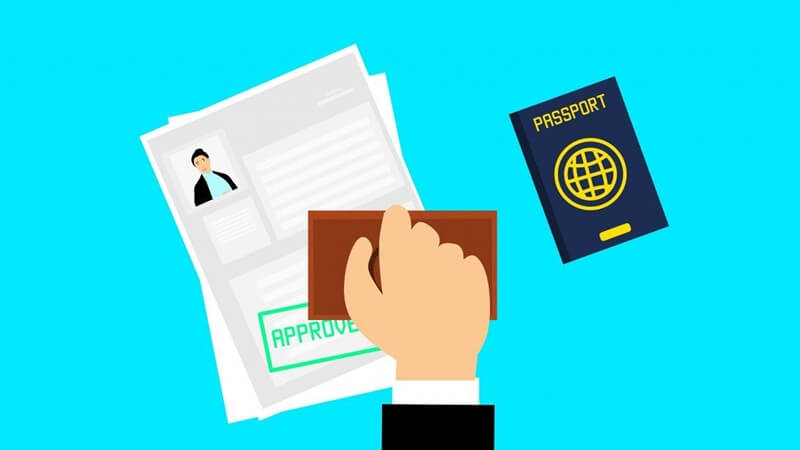
The immigration process in Dominica, whether it be through the CBI program, a long-term residency permit, or a work permit, is a multi-step process that ensures all applicants meet the legal and regulatory standards set by the Dominican government. Each of the immigration routes has its specific requirements, which the prospective immigrants should know inside and out to make the process easy and successful. Specific requirements for each route and the step-by-step process in which each is taken through are now discussed here. Below goes a documentation checklist for various pathways.
The first step before entering the immigration process is that an applicant has to ensure all necessary documents have been collected and are in order. Although slightly different documents may be required for different immigration routes, several form the core of most immigration routes. The accurate completion and submission of such documents are crucial, as omission or mispresentation of relevant documents may lead to an overall delay or even rejection.
Required for CBI:
- Valid Passport: A passport which has a validity of at least six months beyond the application date.
- Proof of the Source of Funds: Clear evidence is to be provided to prove that the funds used for making the investment are from lawful sources. Examples include bank statements, financial records, and documentation of assets.
- Police Clearance Certificates: A police clearance from all countries in which the applicant has resided for more than 12 months in the past 10 years, to confirm that the applicant does not have a criminal record.
- Medical Certificate: A certified medical exam to prove good health and that of no contagious diseases.
- Proof of Address: Utility bills, rental agreements, or other official correspondence that prove an applicant’s current address.
- Birth and Marriage Certificates: These will be in relation to the applicant and dependants for the purpose of establishing family relationships where eligibility for family-based immigration is required.
- Photographs: Passport-sized photographs of the applicant and all dependants, meeting specifications as set by the relevant Dominican authorities.
For a long-term residency permit or work permit, the documentation may be more basic:
- Job Offer Letter for Work Permit: A job offer letter signed by a company in Dominica, which should be willing to sponsor the applicant.
- Evidence of Qualification for Work Permit: Depending on the field, proof of qualifications or professional licenses may be required, including degrees, diplomas, and certifications.
- Proof of Financial Stability: Mandatory for residency, this is very much needed in the case of self-sponsorship or business investors to prove that the applicant has sufficient financial capability to sustain himself during his residency in Dominica.
- Business Plan: In the case of an applicant being a business investor, a comprehensive business plan is required showing details of the nature of the business, its likely contribution to the economy of Dominica, and financial projections. Costs and Fees
The costs of immigrating to Dominica can vary widely depending on the chosen immigration route. For the CBI program, the total costs range from $100,000 to over $250,000, depending on the number of dependents and the type of investment. Here’s a breakdown of the primary fees associated with the CBI:
- Government Fund Contribution:
- Single applicant: Minimum contribution of $100,000
- Family of four: Minimum contribution of $175,000
- Dependants extra: US$ 25,000 each
- Processing fees: about US$ 25,000 for a single applicant, also covers the cost of application handling, due diligence, and other administration.
- Real Estate Investment:
- Minimum investment required is US$ 200,000 in government-approved real estate projects.
- Extra costs: transaction fees, legal fees, property taxes, and maintenance costs
- Real estate investments have to be maintained for a minimum of 3 years before liquidation.
Regarding residency, applicants will usually only need to pay a modest application fee for residency permits that range between $500 and $2,000, depending on the type of visa or permit. Renewals for the residency visa normally range between $500 and $1,500 annually.
Work permits: These range from $1,000 to $3,000, based on the nature of employment and the industry of the applicant. Often, employers who are sponsoring foreign workers will cover a great deal of this cost, but applicants may still have to pay fees to process their applications or for related documentation.
In addition to the investment and application fees, candidates also need to consider professional fees for legal and other professional services. It is highly recommended that the services of a licensed agent or lawyer be retained, particularly for the CBI program, who can guide applicants through the whole process with ease, ensuring that all requirements have been met and facilitating smoother communication with the government.
Application Process: Immigration into Dominica is a highly structured process with tight regulations in order to ensure that only those qualified individuals enter the country. For citizenship, residency, or a work permit, each of these entails several key steps that will serve to ensure that applicants are from the standards set for the country’s security, legal integrity, and economic stability.
The process steps in a CBI application include the following: 1. Pre-application preparation: This involves preparation of all required documentation, including a valid passport, proof of funds, police clearances, and medical certificates. It is highly advisable to work with a licensed agent who will guide and assist in the smooth processing of an application by ensuring that all required documentation is in order before submission.
- Submission of Application: The completed application is then submitted through a licensed CBI agent to the Citizenship by Investment Unit – CBIU, usually online or in person, depending on the agent selected. This will be vetted for completeness by the government prior to proceeding.
- Due Diligence: The CBIU conducts thorough background checks on applicants and their dependents. This includes source of funds verification, criminal history checks, and overall eligibility assessment. Due diligence checks may take anywhere from 4 to 8 weeks, depending on the complexity of the case.
- Approval in Principle: If the application passes due diligence, then the applicant will receive an approval-in-principle letter, which confirms his/her eligibility for citizenship and outlines subsequent steps.
- Investment Payment: The applicant, upon in principle approval, shall be required to make the investment. Candidates who apply through the route of the government fund should make the donation directly to the EDF. The candidates applying through investment in real estate should complete buying their property and provide the proof of payment.
- Issuance of Citizenship and Passport: The government will issue the applicant’s citizenship and passport after confirmation of the investment. This process generally takes a total of 3 to 4 months from the date of submission of the initial application to the issuance of citizenship.
The processes take relatively faster, between 1 to 3 months, depending on the type of visa or permit. In the case of a long-term residency permit, an application, complete with supporting documentation such as a job offer and proof of financial stability, is required to be submitted to the Ministry of National Security and Immigration. Once approved, the applicant is granted a residency visa renewable annually.
Applicants have to obtain an employment offer prior to applying for work permits. Once this happens, the process begins by having the employer submit an application and necessary documents to the Ministry of Labour. The approval usually takes 4-6 weeks after which the applicant is allowed to legally work in Dominica.
Timeline for Processing
Citizenship, residency, and work permits applications are processed within different timeframes with respect to the type of application and the case complexity. However, here is a general idea about processing times:
- investment citizenship: 3 to 4 months
- residency permits: 1 to 3 months
- work permits: 4 to 6 weeks
Although the process is relatively fast compared to other countries, it is worth noting that applicants have to ensure they submit complete and accurate documentation to avoid delays. Working with a licensed agent or legal advisor can help smooth out the process and reduce the chances of any setbacks.
Common Mistakes to Avoid
- Incomplete/Incorrect Documentation: Applications can always remain delayed or get rejected mainly due to incomplete or wrong documentation. Hence, there has to be a double checking to ensure that all needed documents are submitted and correspond exactly to the specifications identified by the Dominican government for any given document.
- Not Budgeting for All Associated Costs: Most applicants are underestimating the total costs associated with the immigration process. In addition to government fees, applicants should also budget for legal services, due diligence fees, and potential travel costs. Being prepared financially will prevent any surprises down the line.
- Delaying the Process: With comprehensive background checks involved, verifications of documents, it’s highly recommended that one applies as early as possible to avoid delays, especially if you have timeframes in mind for relocation to Dominica.
Life in Dominica
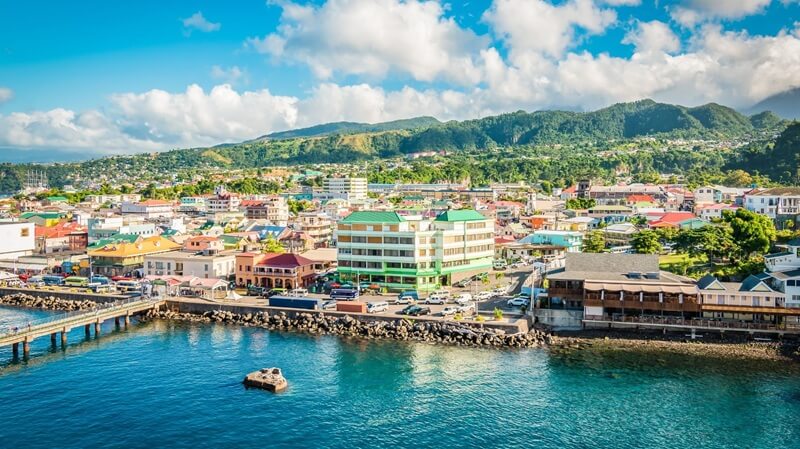
Dominica offers a strange life that has combined natural beauty with modern living amenities. Among the affordable Caribbean islands, Dominica is attracting more and more expatriates, retirees, investors, and families who are looking to live in a quiet and tax-efficient country. We have outlined herein the current cost of living, healthcare, education, transportation, and other areas in Dominica as of December 2024.
Cost of Living
Dominica has a relatively low cost of living when compared to most other Caribbean islands. Housing, food, utilities, and transportation are relatively inexpensive; however, the exact cost may vary depending on location, lifestyle choices, and the size of your family. Following are typical living expenses as they currently stand in Dominica:
- Housing: This is one of the cheapest aspects of living in Dominica. Rentals change according to location, size, and property type.
- One-bedroom apartment in Roseau: The capital of Dominica offers affordable housing; it ranges in the city center from $500 to $750 USD per month for a one-bedroom apartment. A more suburban or rural area may lower rental costs to around $400 to $600 USD for a similar apartment.
- Three-bedroom apartment/house: In general, bigger houses in central areas, like Roseau, will cost in the range of $1,000 to $1,800 USD per month. If less populated or rural areas are taken, then the rate decreases to $800 to $1,200 USD per month.
- Real Estate Investment: The minimum amount required for investing in real estate for CBI applicants is US$ 200,000. Other than that, the extra costs will be legal fees, taxes, and maintenance costs, but this can be a good option if one wants to invest in houses or property.
- Utilities: Utility costs in Dominica are somewhat reasonable; they may also depend on house size, consumption, and location. For most expats living in or around the capital, following is a general estimate of utility expenses per month:‐ Electricity: from $80 to $150 USD, depending on how much used by household size.‐ Water: On average, water expenses amount to about $20 to $30 USD monthly.
- Internet: Internet prices are reasonably cheap, with high-speed broadband costing from $50 to $100 USD per month.
- Mobile: Mobile phone costs depend on which carrier is used, but generally, one can expect to pay between $15 and $40 USD for a basic data plan.
- Groceries: The local markets of Dominica have fresh produce available at reasonable prices, especially when buying local fruits, vegetables, and seafood. However, imported goods tend to be more expensive.
- Bread (loaf): $2.50 to $3.50 USD.
- Eggs (dozen): $3 to $4 USD.
- Milk (1 litter): $2.50 to $3.50 USD.
- Rice (1 kg): $2 to $3 USD.
- Local produce: Seasonal fruits and vegetables like banana, plantains, tomatoes, and cucumbers cost around $1 to $2 USD per kg.
Generally speaking, imported goods and international brands are 20%-30% more expensive than local products. The monthly expenditure on groceries for a small family or individual could lie in the range of $300 to $600 USD per month, depending on the dietary preferences and quantity of imported food bought.
- Transportation: Public transportation within Dominica is somewhat limited. Minibuses travel on the main routes that interlink towns and villages. To expatriates, ownership of cars can be most practical. Transportation Costs: a. Public Transport: Minimum $1 to a maximum of $3 USD on the minibuses for intra city or shorter inter-city trips.
- Car Rental: The cost of renting a car is about $35 to $75 USD for a day for a no-frills car while the monthly rentals are between $800 and $1,500 USD.
- Gasoline: Gasoline is about $5.00 USD per gallon.
Public transportation is available, but most expats prefer to drive since the island is rugged and it is more convenient to get around in your own vehicle.
Healthcare
Healthcare in Dominica is affordable but varies depending on whether you use public or private services. The island boasts both public and private hospitals and clinics. Most expatriates prefer private healthcare, simply because the waiting times are shorter and the care more personal.
- Public Healthcare: The government operates public healthcare facilities such as the Dominica-China Friendship Hospital in Roseau. Medical visits are way cheaper, with an average consultation costing $10 to $25 USD.
- Private Healthcare: Other private healthcare providers, such as DDS Medical Center, offer higher-class services at higher costs. A private doctor’s visit generally ranges from $40 to $100 USD per consultation.
- Emergency Care: For this, the cost can range from $150 to even $500 USD, because of the severity and even the type of care taken. Private hospitals and the emergency services are usually not budget-friendly.
Specialized treatments, however, would have those assigned to Dominica looking to travel to sister islands like Antigua or St. Lucia for their larger medical centers. A number of expatriates also take out international health insurance policies, costing around 150 to 300 US dollars a month depending on the coverage. Education
Education in Dominica is relatively affordable; however, most expatriates prefer private schools due to the higher quality of education and international curricula. Here’s a breakdown of education costs:
- Public Schools: Dominica offers free primary and secondary education at public schools, which follow the Caribbean Examination Council (CXC) curriculum. Costs for public schools are minimal and usually confined to uniforms, books, and other school supplies.
- Private Schools: A number of private schools like The Dominica Grammar School can cost anywhere between $2,000 and $4,000 per year for both primary and secondary education. Fees at international schools will be significantly higher, as these often range from around $5,000 up to $10,000 annually.
A few schools offering international curricula may be found by expats for international education options for their children. These will have higher fees to reflect the quality of the education and extracurricular activities.
Cultural Integration and Community Living in Dominica also implies a plunge into its culture and community. Dominica is one of the friendliest islands in the world, so it is rather easy for a newcomer to settle down here. The cultural diversity of the island reflects the combination of African, Caribbean, and European influences all put together in the kaleidoscope of traditions, music, and festivals.
- Carnival: This is one of the most thrilling events on the island, normally in February or March. The festival combines dynamic music, dancing, and parades.
- Local Markets: The local markets of Dominica, especially the Roseau Market, are a hub of fresh local produce, crafts, and souvenirs. It’s a great opportunity to mix with locals and experience the culture of the island.
The community integration becomes relatively easy as the expats usually engage in various social clubs, businesses, and cultural activities that easily connect them to both the locals and other immigrants. Safety and Security
Dominica is considered one of the safest islands in the Caribbean, with a low crime rate. The country is very politically stable, with very rare violent crime. Of course, petty crimes, such as pickpocketing, can occur from time to time, but it’s not considered a big issue. The local community is very supportive, and the relatively low population of the island contributes to a feeling of safety.
Natural disasters do occur in Dominica, mainly from hurricanes. These hurricanes occur principally between the months of June and November. Since the devastation caused by Hurricane Maria in 2017, it has hugely ramped up its disaster preparedness, making its structures strong enough for any oncoming storm.
Advantages of Immigration to Dominica
- Dual Citizenship: The Dominican is one of the very few countries that allow double citizenship, meaning that applicants would retain their original nationality with all the other benefits derived from Dominican citizenship. Now, with this flexibility, this will be an attractive choice for those people who don’t want to give up their exiting citizenship but also seek to inherit the advantages of residence in a tax-efficient environment with travelling freedom.
- Visa-Free Travel: A Dominican passport is a quite strong travel document in general. It offers visa-free or visa-on-arrival access to more than 140 countries and territories, including the European Union Schengen Area, the UK, Singapore, and Hong Kong. All this ease of access makes it an excellent choice for frequent travelers, entrepreneurs, and global citizens who value freedom to move across borders with minimal restrictions.
- Tax Incentives: The tax system of Dominica is very friendly toward investors and businessmen. This does not levy any inheritance tax, gift tax, or capital gains tax and therefore proves to be an added bonus and attraction for people trying to amass wealth and gain investments therein. There are also no estate taxes, meaning the amount your heirs receive is free of the burden of a taxing nature, thus ensuring greater economic comforts for the family.
Application Tips and Expert Advice to Dominica
Common Mistakes to Avoid:
- Insufficient Documentation: It is one of the key reasons for delays or, worse still, denials in immigration processes. Complete all the required documents and attach them as per the stipulation of the Dominican Government. This also entails furnishing certified translations wherever essential, particularly for non-English documents, so the verification process may not catch them wrong.
- It causes delay in application processing. More so, citizenship by investment may take up to many months, sometimes close to a year or so, depending on how early it was put into consideration and how fast all required documents are in order to kick-start the processing. End.
- Costs are underestimated. Most candidates applying for Dominica citizenship are not budgeting in mind all the related costs. In addition to the contribution/direct investment in real estate, there is the need to account for some processing fees, due diligence fees, legal fees, and many other administrative costs. Therefore, depending on the number of dependents and the route, the total investment may come several folds higher than what the base of the program requires.
Expert Recommendations:
- Deal with a Professional Agent: The process of immigration can be quite complex. In order to avoid mistakes and ensure that you meet all the requirements, it is highly recommended to hire a licensed agent or consultant who has experience in Dominica’s immigration programs. They can provide personalized guidance, handle the paperwork, and ensure the application is submitted correctly.
- Prepare Your Financial Documents in Advance: One of the important aspects of the application is proving the source of funds for your investment. This should be done way ahead of time, and all financial statements should be clear, valid, and well-organized legally. In this way, it will be easier when verification is required, thus reducing delays in the process of application.
Conclusion
Dominica is undoubtedly one of the best places to relocate to in the Caribbean. With its breathtaking natural scenery, political stability, and attractive tax incentives, it’s a unique opportunity for singles and families alike. Whether one applies for citizenship through the CBI program or a residence permit, Dominica immigration pathways are flexible and achievable, making it an excellent option in pursuit of a peaceful and prosperous life.
Dual citizenship, visa-free travel, and huge tax savings are considerable benefits associated with making Dominica one’s new home. The immigration process is relatively uncomplicated and fast to ensure an applicant can achieve his aim of relocation in only a few months. Dominica is the place where opportunities, security, and beauty come together, offering a fulfilling lifestyle.
If you are ready to take the next step, explore your options, and consider working with a professional advisor to ensure a smooth transition. Dominica awaits, and the possibilities it offers could be the fresh start you’ve been searching for.

